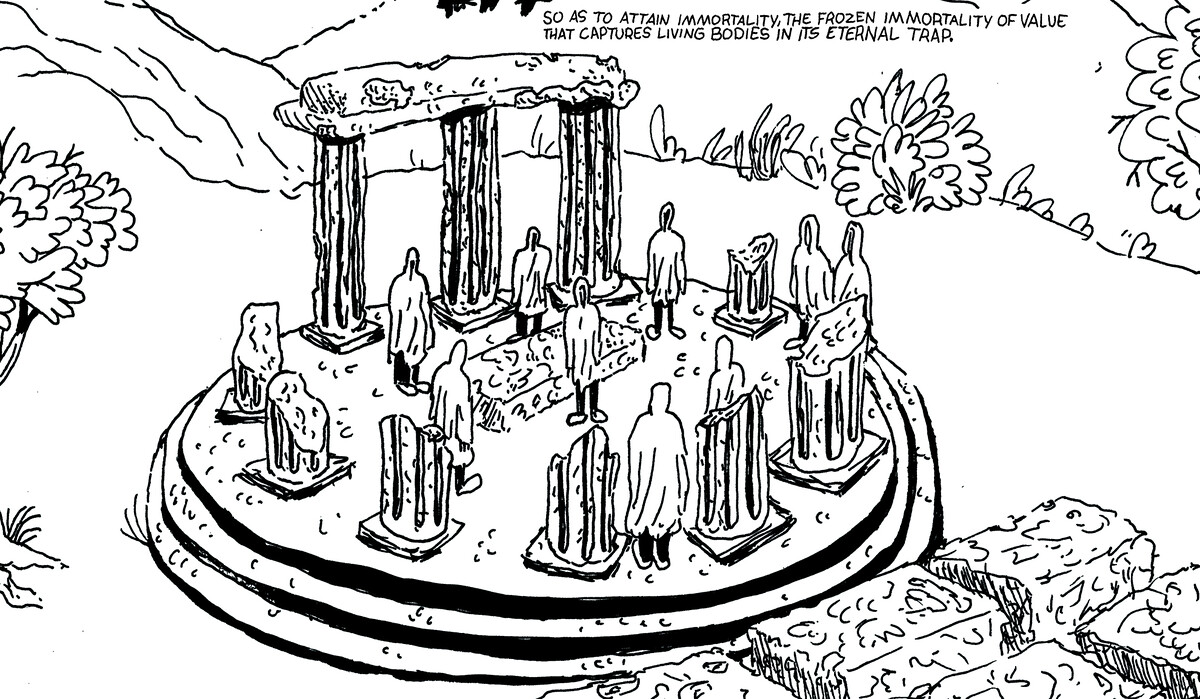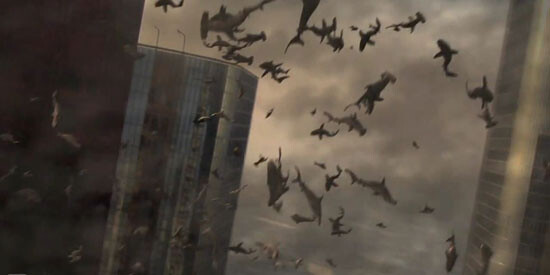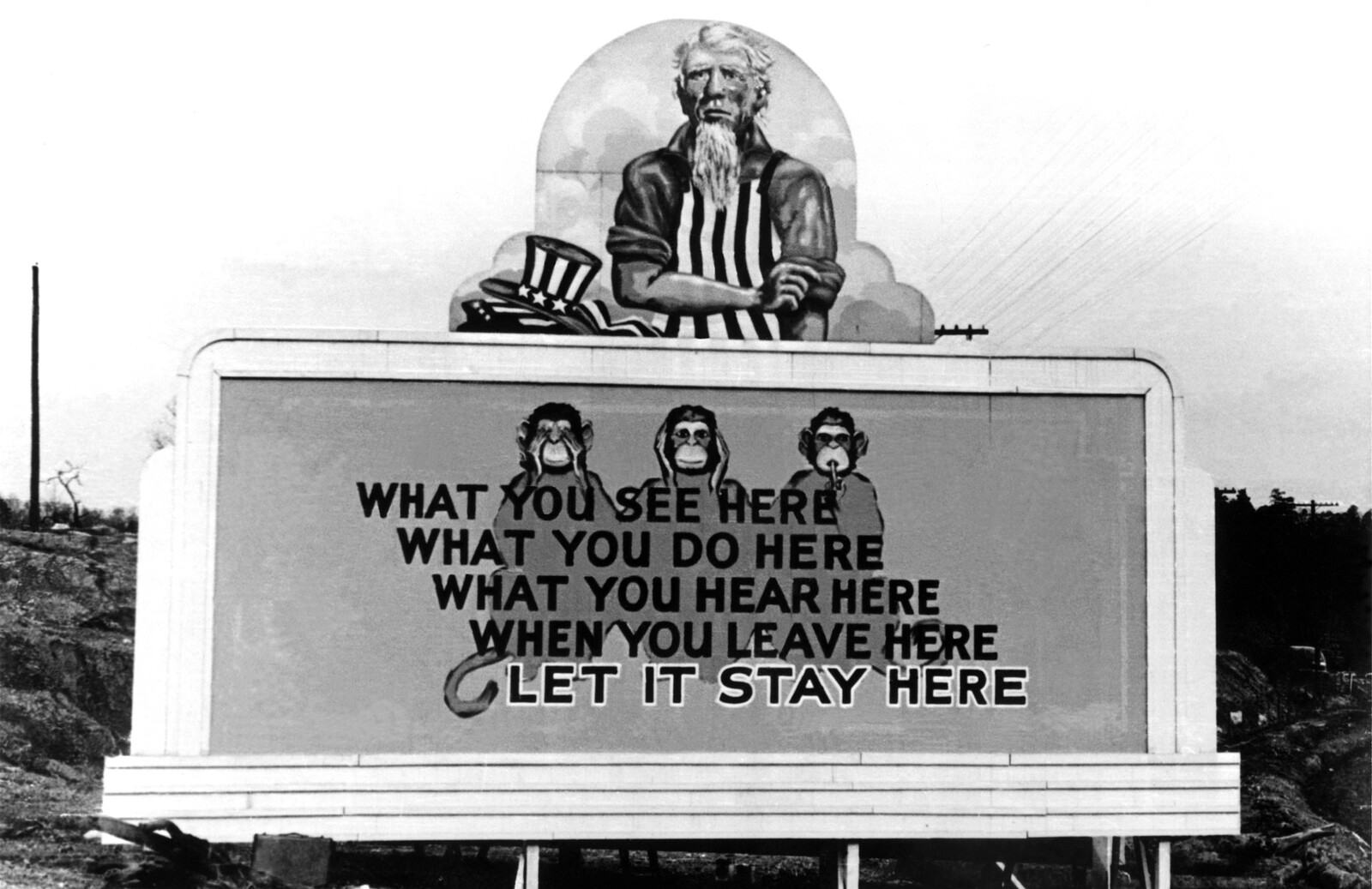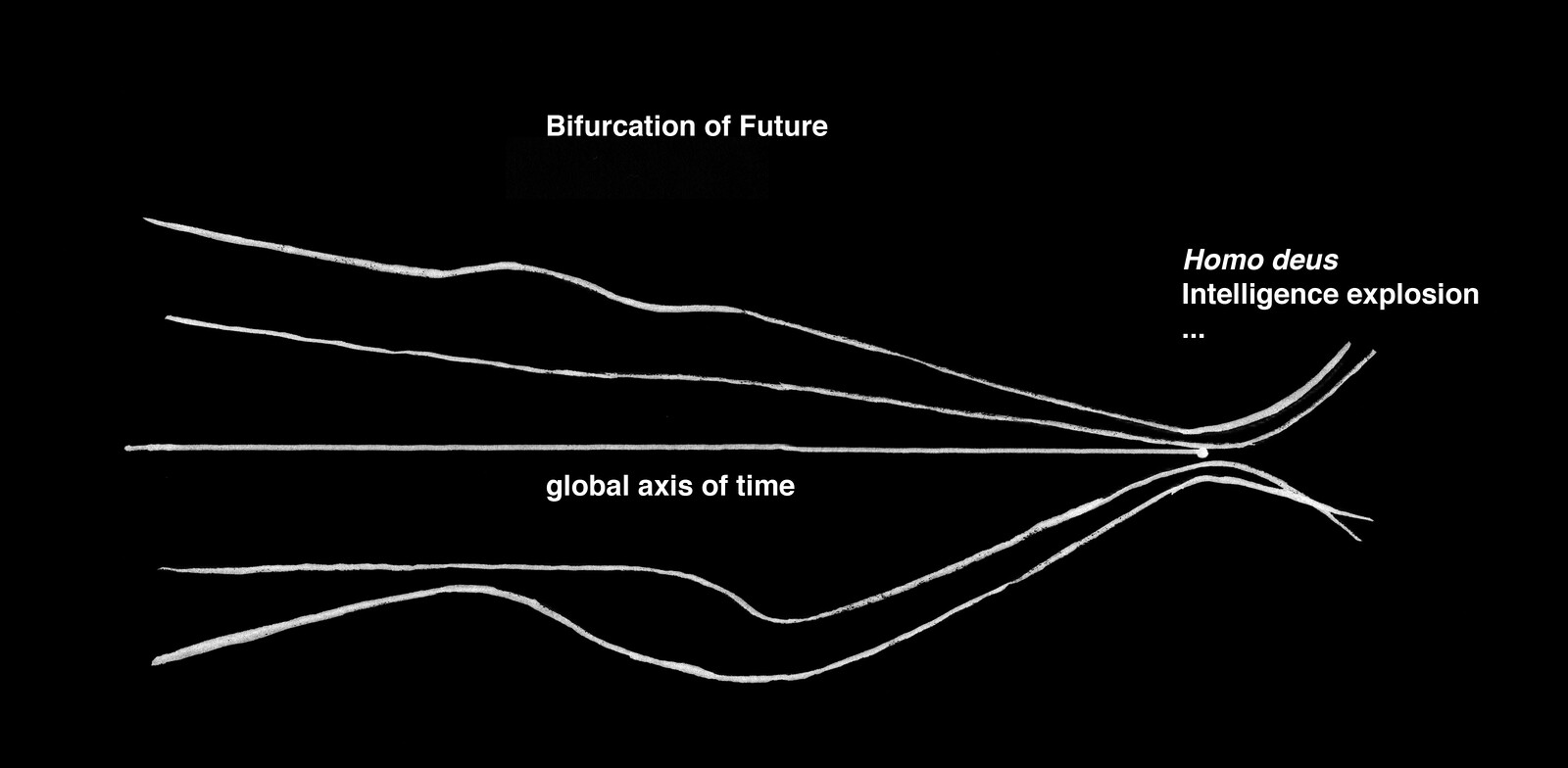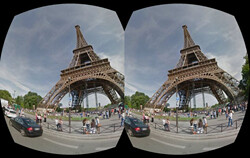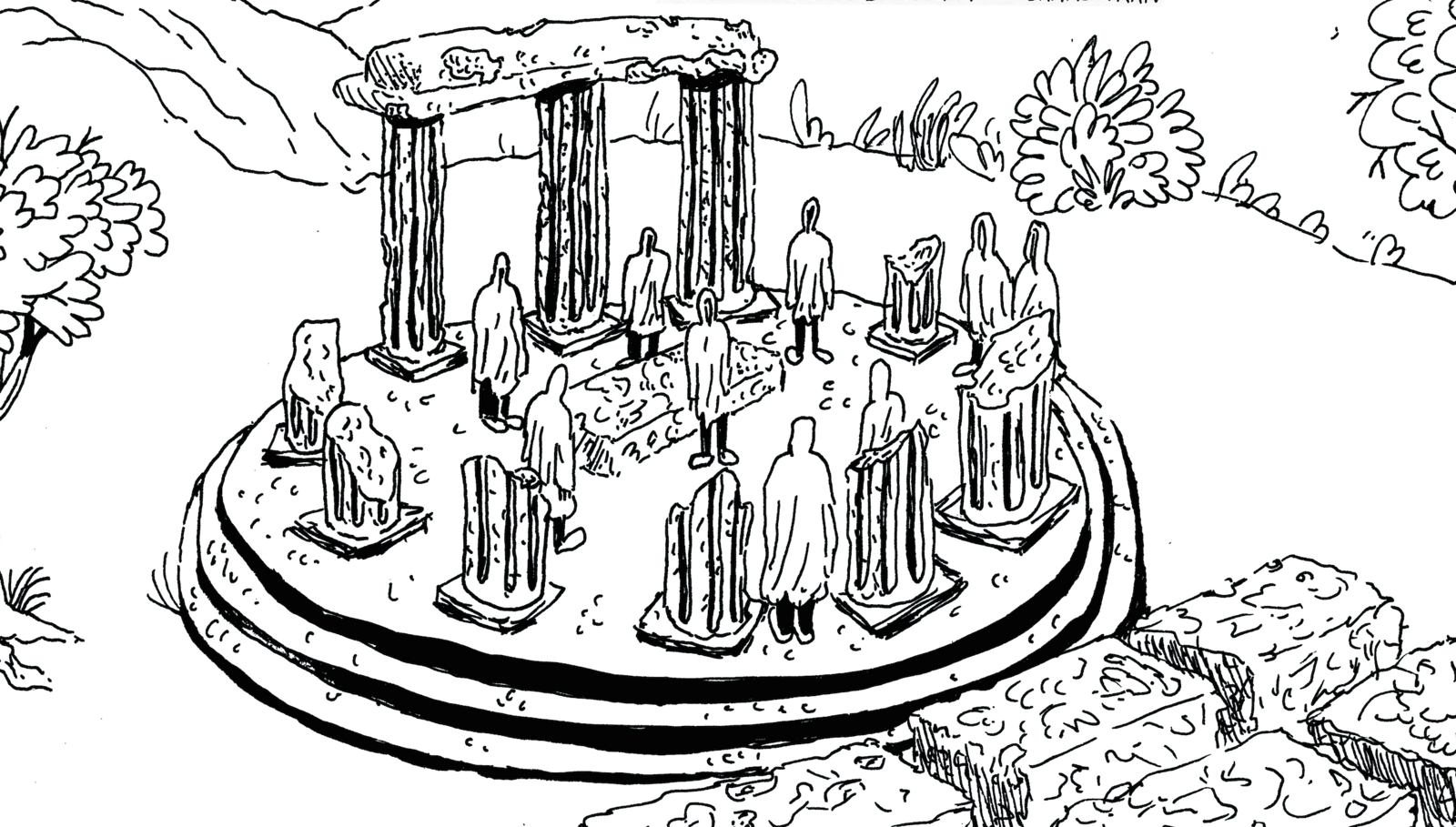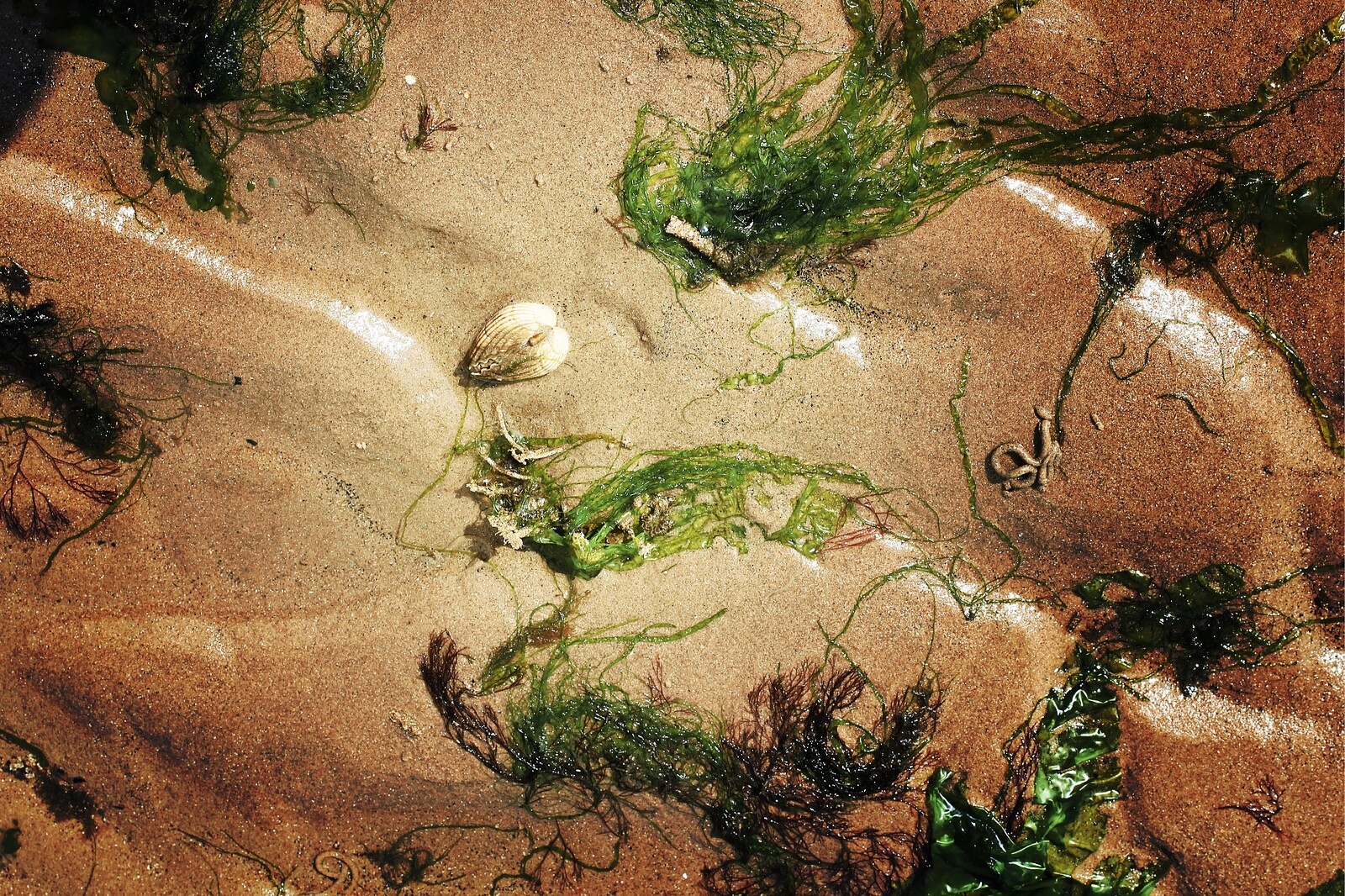End
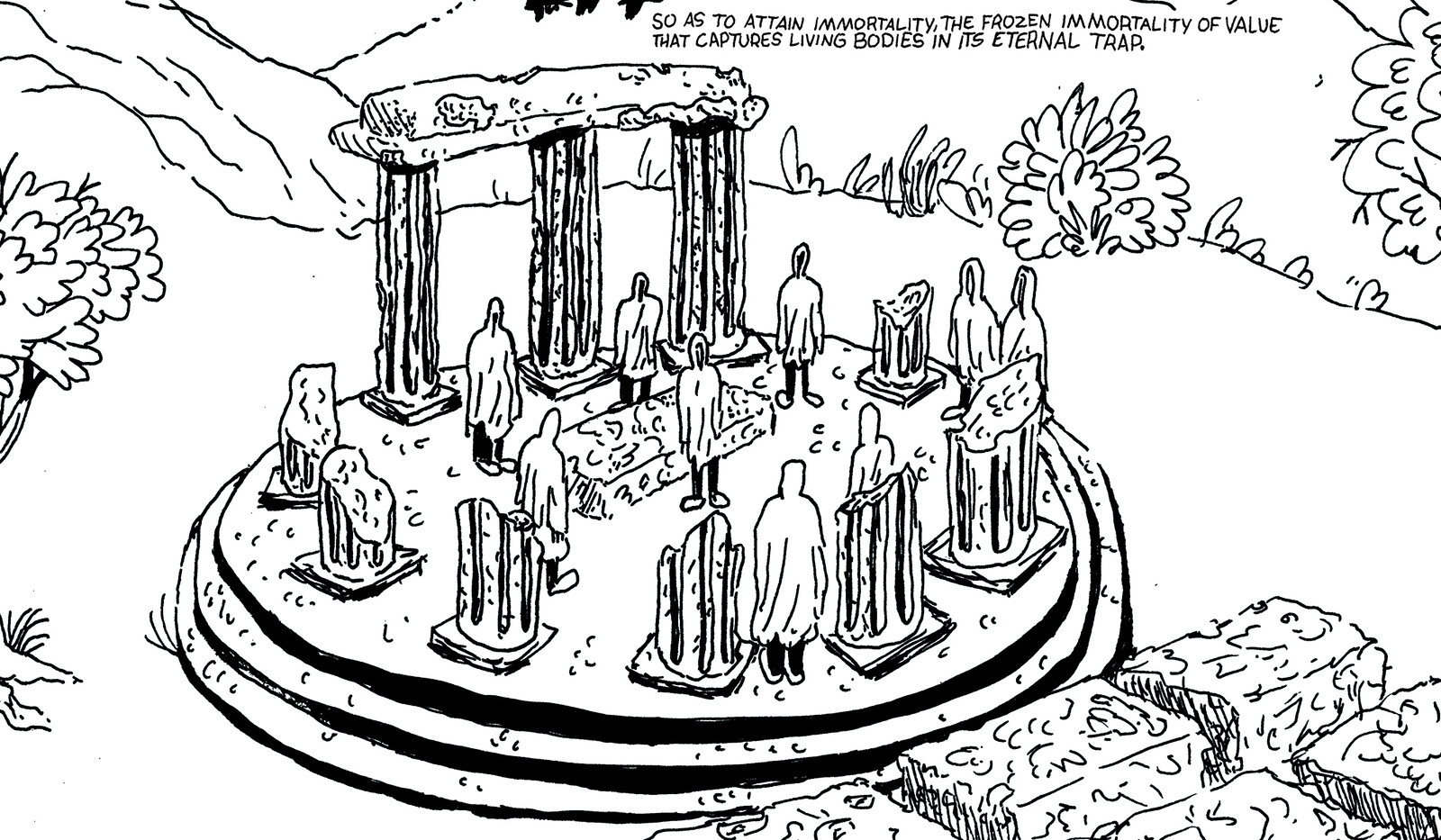

For many of us, the current pandemic raises the question of eschatology and the end—whether it is the idea of a looming apocalypse or the end of “the end of history,” which is to say the end of the neoliberal global order as we know it. The writers gathered here help us think with, against, and through the end of economy, history, and the world. They also remind us of radical care in the midst of ecological disaster; of how to live in and after catastrophe—not to reinstate a prior status quo, but to act in a renewed, mutual solidarity.
If Google Earth or a satellite view of the garbage patch proves to be an impossible undertaking, it is because the plastics suspended in oceans are not a thick choking layer of identifiable objects but more a confetti-type array of suspended plastic bits. Locating the garbage patch is on one level bound up with determining what types of plastic objects collect within it and what effects they have. Yet on another level, locating the garbage patch involves monitoring its shifting distribution and extent in the ocean. The garbage patch is not a fixed or singular object, but a society of objects in process. The composition of the garbage patch consists of plastics interacting across organisms and environments. But it also moves and collects in distinct and changing ways due to ocean currents, which are influenced by weather and climate change, as well as the turning of the earth (in the form of the Coriolis effect) and the wind-influenced direction of waves (in the form of Ekman transport). As an oceanic gyre, the garbage patch moves as a sort of weather system, shifting during El Niño events, and changing with storms and other disturbances. Ocean sensing then requires forms of monitoring that work within these fluid and changeable conditions.
On the other hand, we may understand Kissinger’s end-of-Enlightenment claim as marking the full realization of a single global axis of time in which all historical times converge into the synchronizing metric of European modernity. It is the moment of disorientation—a loss of direction as well as of the Orient in relation to the Occident. The unhappy consciousness of fascism and xenophobia arises from this inability to orient: as a response, it offers an easy identity politics and an aestheticized politics of technology. More broadly, such a disorientation can be seen as a desirable and necessary deterritorialization of contemporary capitalism, which facilitates accumulation beyond temporal and spatial constraints. War is the technique of disruption par excellence, vastly more effective than Uber and Airbnb.
“Do not expect the nightmare to dissolve. Liberal democracy will not come back. It is the source of disaster.”
But what does vulnerability actually mean? Is it being able to acknowledge a state of pain or insecurity, embracing the feeling of coming undone? I feel that it’s something I’ve tried to hide from others and from myself. At the cost of headaches, a bloated stomach, the inability to articulate a sentence. A mental-physical feeling of paralysis. I now suspect that people spend a lot of time and effort hiding in this way. Could I overcome my terror of falling apart if I allowed myself to rely on others, on you? Or should I be a “cruel optimist” and create hopeful and positive attachments, in full awareness that they will not work out?
